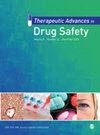帕金森病的结构化药物审查:药剂师的观点、经验和需求--定性研究
IF 3.4
3区 医学
Q2 PHARMACOLOGY & PHARMACY
引用次数: 0
摘要
背景:在初级保健中执行结构化用药审查(SMR)以优化药物治疗被认为是荷兰社区药剂师的标准护理。帕金森病(Parkinson's disease,PD)患者在对症治疗时往往面临复杂的用药方案,因此可能会从结构性用药回顾中获益。然而,此前并未发现 SMR 对帕金森病患者的生活质量有任何影响。为了改善对帕金森病的病例管理,我们有必要了解在药剂师看来,帕金森病患者的SMR是否以及在多大程度上具有附加值,以及假定的促进和阻碍因素是什么。方法:访谈对象为至少对一名帕金森病患者实施过一次 SMR 的社区药剂师,直至数据达到饱和。采用迭代法对访谈内容进行逐字记录、编码和专题分析。结果:13 位药剂师接受了访谈。他们认为,尽管慢性阻塞性肺病的治疗已在二级医疗机构得到了很好的监控,但慢性阻塞性肺病的 SMR 仍具有附加值,尤其是在与患者的接触和联系、个性化护理及其在未来可能产生的影响方面。结论:虽然社区药剂师主导的 SMR 耗时较长,有时在后勤方面也具有挑战性,但在一般初级保健中具有附加值,在主要由二级保健提供治疗的帕金森病中也是如此。它强调了药剂师在帕金森病治疗中的作用,并可能解决未来与药物相关的问题。改进措施涉及多学科合作,以优化 SMR 的执行和结果。本文章由计算机程序翻译,如有差异,请以英文原文为准。
Structured medication reviews in Parkinson’s disease: pharmacists’ views, experiences and needs – a qualitative study
Background:Executing structured medication reviews (SMRs) in primary care to optimize drug treatment is considered standard care of community pharmacists in the Netherlands. Patients with Parkinson’s disease (PD) often face complex drug regimens for their symptomatic treatment and might, therefore, benefit from an SMR. However, previously, no effect of an SMR on quality of life in PD was found. In trying to improve the case management of PD, it is interesting to understand if and to what extent SMRs in PD patients are of added value in the pharmacist’s opinion and what are assumed facilitating and hindering factors.Objectives:To analyse the process of executing SMRs in PD patients from a community pharmacist’s point of view.Design:A cross-sectional, qualitative study was performed, consisting of face-to-face semi-structured in-depth interviews.Methods:The interviews were conducted with community pharmacists who executed at least one SMR in PD, till data saturation was reached. Interviews were transcribed verbatim, coded and analysed thematically using an iterative approach.Results:Thirteen pharmacists were interviewed. SMRs in PD were considered of added value, especially regarding patient contact and bonding, individualized care and its possible effect in the future, although PD treatment is found already well monitored in secondary care. Major constraints were time, logistics and collaboration with medical specialists.Conclusion:Although community pharmacist-led SMRs are time-consuming and sometimes logistically challenging, they are of added value in primary care in general, and also in PD, of which treatment occurs mainly in secondary care. It emphasizes the pharmacist’s role in PD treatment and might tackle future drug-related issues. Improvements concern multidisciplinary collaboration for optimized SMR execution and results.
求助全文
通过发布文献求助,成功后即可免费获取论文全文。
去求助
来源期刊

Therapeutic Advances in Drug Safety
Medicine-Pharmacology (medical)
CiteScore
6.70
自引率
4.50%
发文量
31
审稿时长
9 weeks
期刊介绍:
Therapeutic Advances in Drug Safety delivers the highest quality peer-reviewed articles, reviews, and scholarly comment on pioneering efforts and innovative studies pertaining to the safe use of drugs in patients.
The journal has a strong clinical and pharmacological focus and is aimed at clinicians and researchers in drug safety, providing a forum in print and online for publishing the highest quality articles in this area. The editors welcome articles of current interest on research across all areas of drug safety, including therapeutic drug monitoring, pharmacoepidemiology, adverse drug reactions, drug interactions, pharmacokinetics, pharmacovigilance, medication/prescribing errors, risk management, ethics and regulation.
 求助内容:
求助内容: 应助结果提醒方式:
应助结果提醒方式:


